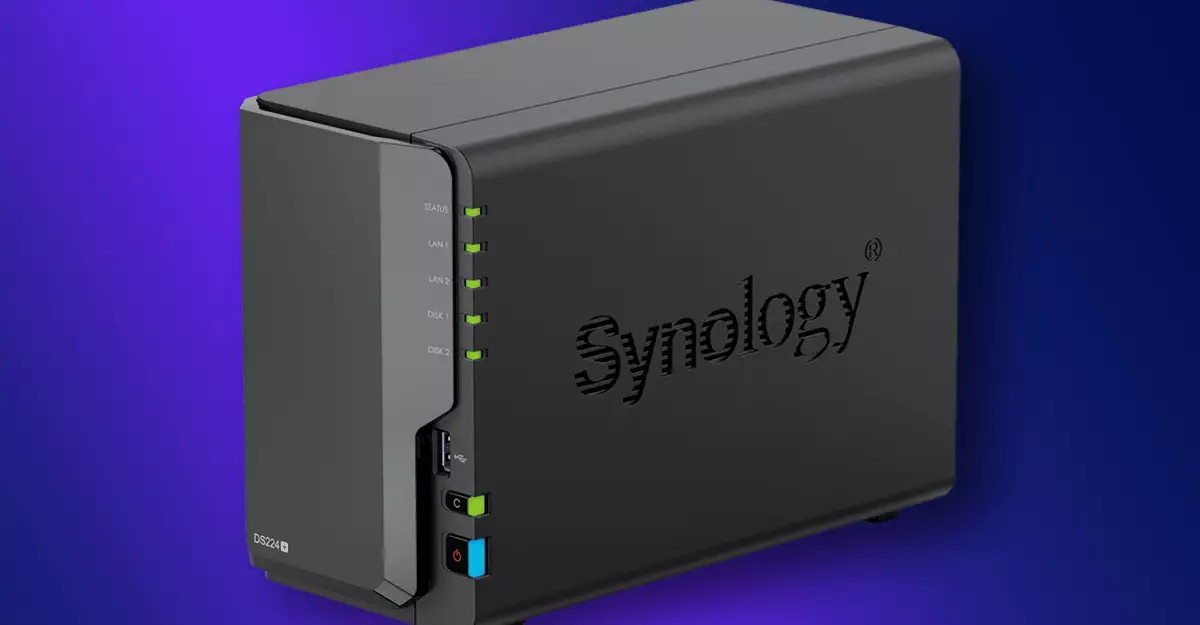Synology, a leader in network-attached storage (NAS) devices, has decided to take a significant step that may transform how users interact with their storage solutions. The company confirmed to tech outlets like Ars Technica that future models will implement restrictions on using third-party hard drives. This strategic shift, starting with the Plus Series slated for a 2025 release, raises eyebrows within the tech community, prompting discussions about consumer choice, compatibility, and potential benefits.
While existing devices will remain unaffected, the implications of such restrictions are profound. As users increasingly value flexibility, the idea of being confined to Synology-branded or certified drives could evoke frustration and concern. The primary promise of NAS devices has been their versatility—allowing users to mix and match components to suit their needs. Moving forward, this open architecture could face narrowing margins.
The Rationalization Behind the Move
From Synology’s perspective, the decision appears to be a response to rigorous internal testing results. The company argues that utilizing drives meeting a stringent validation process minimizes the risk of failure and enhances overall system reliability. In their press release, they framed this change as a means to reduce compatibility issues and elevate performance metrics.
However, one can’t help but wonder whether Synology is prioritizing corporate interests over consumer flexibility. While improved reliability is a crucial selling point, it comes at the expense of user autonomy. The potential benefits could translate to higher production costs, and inevitably, these expenses are likely to be passed down to the consumer. A careful balance between reliability and choice is essential for maintaining customer loyalty, and this move may disrupt that equilibrium.
Consumer Impact and Reaction
For customers who already own a Synology NAS, the news is a mix of relief and apprehension. The expected changes won’t impact devices released before the deadline, preserving existing user experiences. Still, the bigger picture reveals a daunting landscape for newcomers and potential buyers looking at Synology’s offerings. No longer will consumers enjoy the flexibility to choose from a variety of hard drives, including budget options that could enhance the cost-effectiveness of a storage setup.
Users may find themselves constrained by a narrower selection of approved hardware, raising hairline cracks in the relationships between consumers and manufacturers. Choices in purchasing less expensive third-party drives could dwindle, limiting opportunities for savvy buyers to save costs.
Comparisons with Other Industries
Synology is not alone in the tech industry when it comes to regulating compatibility with third-party components. Similar controversies have occurred in varied fields, most notably with printer companies blocking third-party ink. However, the differentiation lies in how these restrictions are enforced. Synology’s proactive approach does not seem as draconian at first glance; it does not intend to disable functionality through software updates, unlike some competitors.
Yet, the principle remains similar: creating a controlled ecosystem where consumers are nudged toward proprietary products. This trend invites critical scrutiny. Are manufacturers looking out for the customer’s best interest, or are they merely tightening their grip on profitability? The success of this strategy frequently depends on how the consumer perceives the trade-offs between reliability, performance, and cost.
The Path Forward: Navigating Change
As Synology moves forward with these restrictions, it will be essential to monitor how this decision affects user satisfaction and overall market dynamics. The company would do well to prioritize transparent communication with its user base to foster understanding and mitigate backlash. Emphasizing the reliability factor while keeping a finger on the pulse of user needs will be paramount.
Tech enthusiasts and everyday users alike hope that Synology stays attuned to the feedback surrounding these changes. With competition in the NAS market escalating, how Synology navigates this terrain could not only reshape its future but also set precedents that other tech companies may follow. Balancing the need for control with the desire for consumer freedom may become the litmus test for brand loyalty in an ecosystem driven increasingly by innovation and user experience.

